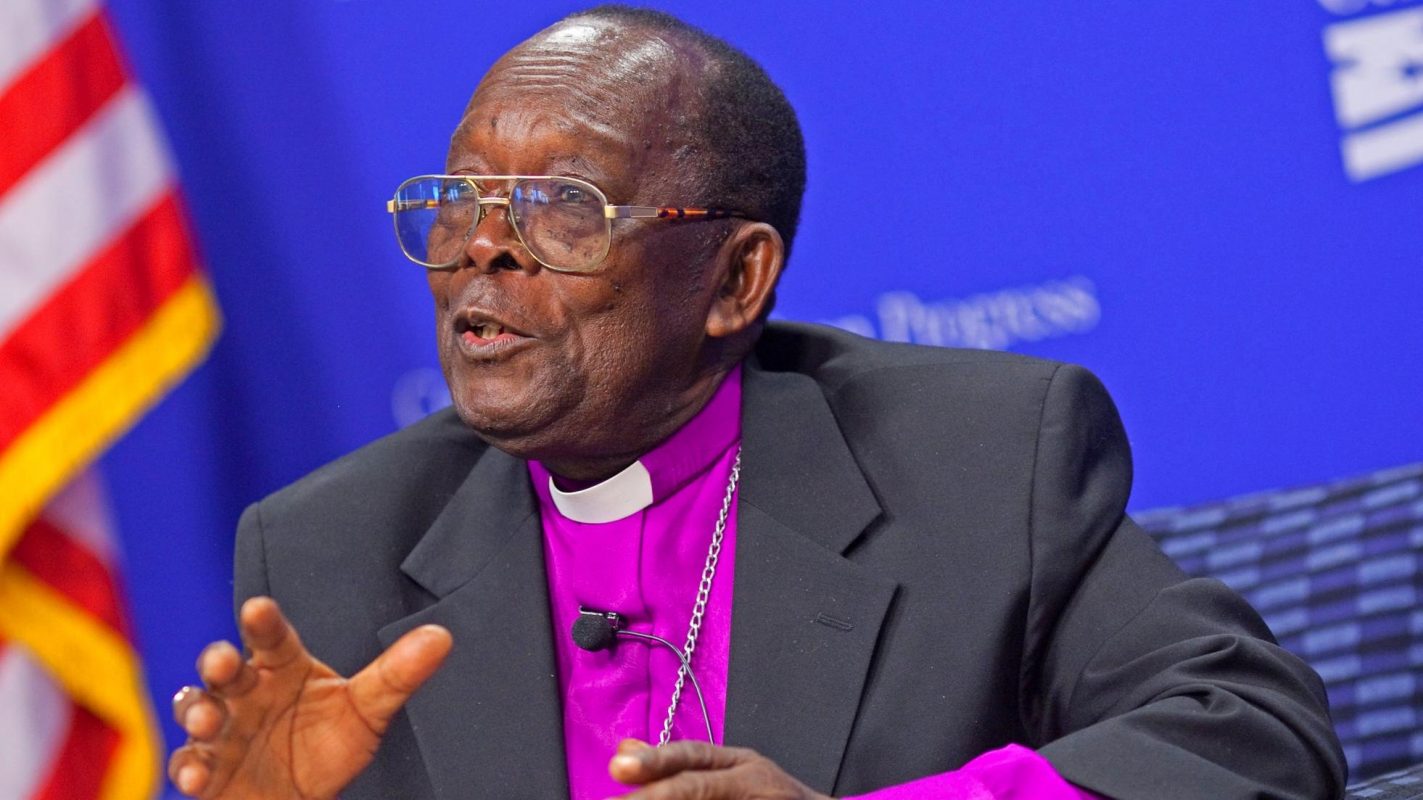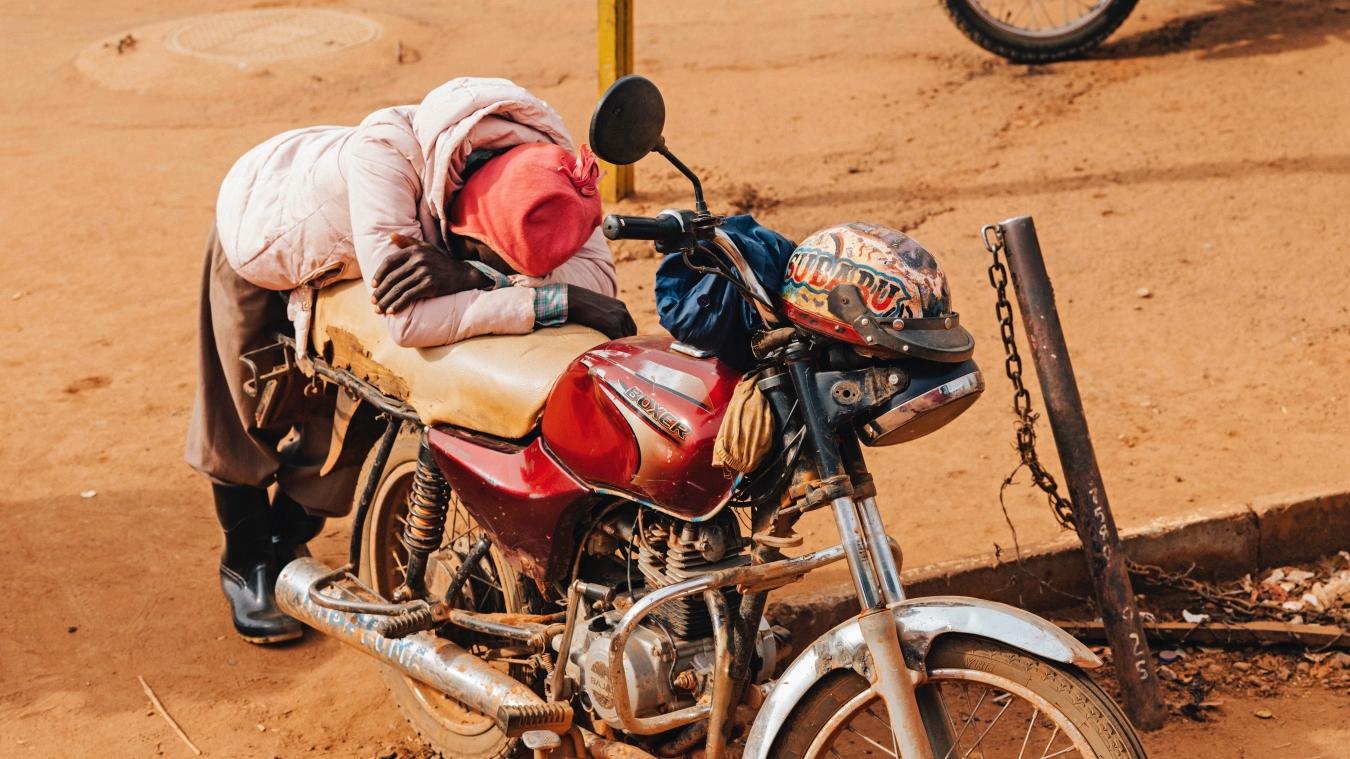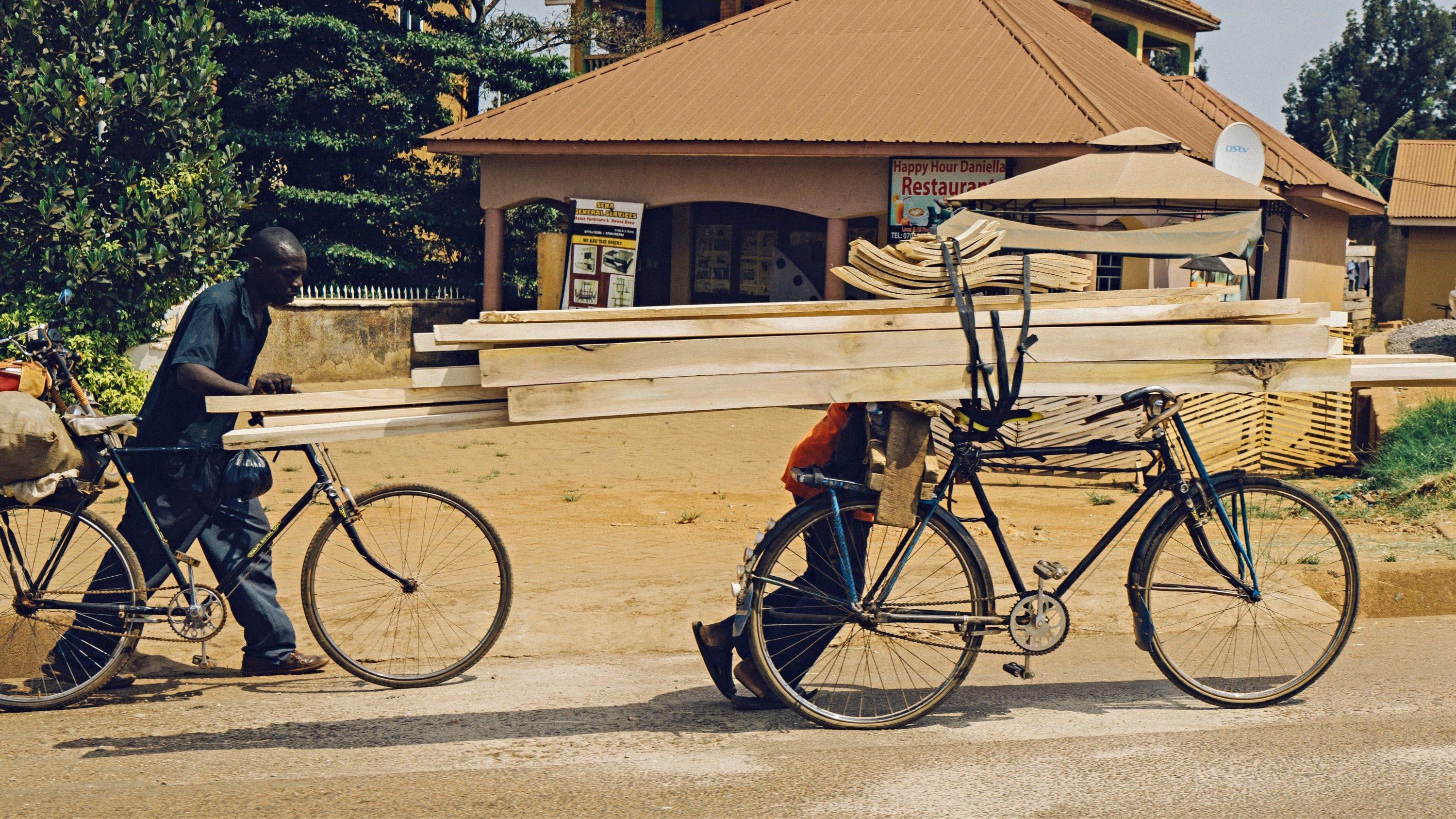The Ugandan government’s severe response to Covid-19 has encouraged endless debate over the virus’ origins, in the face of unclear global explanations. Conspiracy theories and rumours proliferate, especially in regions with no recorded infections. Liz Storer explores how local people understand the origins of Covid-19, and whether explanations challenge the delivery of effective public health policies.
This post is part of a series exploring the effects and experiences of Covid-19 containment in Uganda.
Presidential directives have, since the beginning of April 2020, had a profound effect on the lives of Aruans in West Nile, Uganda. Many fear falling sick, with Covid-19 lauded as ‘the virus that attacks anyone’ over local radio stations. At the same time, restrictions on movement are having equally serious consequences, particularly for the poorest households who rely on trade to survive.
Internationally, experts have invested in ways to combat misinformation related to Covid-19. At the Munich Security Conference in February, the World Health Organisation (WHO) Director, General Tedros Adhanom Ghebreyesus highlighted how rumours could present a problem for public health measures: ’we’re not just fighting an epidemic; we’re fighting an infodemic,’ he explained.
We explore how Aruans seek to understand Covid-19 through constructing explanations about its origins. While ideas of global geopolitical conspiracy and divine curses circulate via Whatsapp and throughout households, these explanations do not prevent efforts to implement social distancing and public health measures. But, more pressingly, since no cases have been recorded in Arua, social groups entertain whether the pandemic is being manipulated for political ends. Reportedly, it is these rumours that increasingly incite young men, in particular, to flout public health measures.
Covid-19 in Arua, West Nile
Situated 420 kilometres from Kampala, Arua Town is distant from the Ugandan capital. This geographical distance has been compounded by decades of government neglect: only since the recent refugee influx to the sub-region from South Sudan has the spinal road which traverses the district been tarmacked. It is located in the West Nile district, which remains the second-poorest region in Uganda. Even within Arua municipality, many households lack access to regular electricity and piped water.
This marginal status of the region is perhaps felt most acutely in deficits of health care provision. Mortality rates are higher than elsewhere in Uganda, and people continue to die of treatable diseases: tuberculosis, malaria and cholera. In view of pre-existing serious limitation in health infrastructure, should Covid-19 cases appear in Arua, the consequences could be severe.
Aruans, however, are familiar with emergency health measures. In 2019 outbreaks of plague affected borderlanders, and previously cholera epidemics have affected overcrowded residential areas of Arua Municipality. Positioned across the border from the recent Ebola epidemic in the Democratic Republic of Congo (DRC), preparedness efforts and screening for the disease were enforced along the border and in Arua Town throughout 2018–19.
Aruans feared Ebola because of high mortality rates, yet associated public health interventions did not radically restructure people’s everyday lives like Covid-19 measures. It is precisely because, as across the world, Covid-19 has so dramatically changed daily routines that the origins of the virus have stimulated endless debate.
Transnational conspiracies
Many Aruans call Covid-19 the ‘Chinese sickness’ and, in speaking of its origins, participate in conspiratorial twists linked to the virus’ origins in Wuhan, China. Some Aruans consider elaborate explanations for the virus’ emergence: as a biological weapon intended to cause World War III; from a failed experiment in China to manufacture tear-gas; or a biological weapon made by Americans sent to China to weaken its economy. One Muslim explained that Covid-19 began as a punishment from Allah because of the destruction of mosques in China. These rumours and transnational conspiracy theories are contested in group conversations. As the origins of the virus are unknown, pondering distant geopolitical ideas fills in for alternative explanations.
Of course, conspiracy theories are not limited to Arua (nor to Covid-19). Recently, the European and American press, as well as online information sharing platforms, have attempted to quash theories that the spread of Covid-19 is linked to 5G internet. Moreover, continued racialisation of the virus as related to China dominated early comment. Aruans echoed a much-memed press conference speech by Donald Trump as Covid-19 cases soared across Europe and the US, where he insisted on calling it a ‘Chinese virus’, which ‘comes from China’.
While these conspiracy theories position Aruans within imaginations of global geopolitical powers struggles, conversations simultaneously have a more local grounding. Historically, when new forms of sickness or mortality appear in West Nile, their origin is located in particular places, or in particular types of people. Devastating outbreaks of cerebro-spinal meningitis and sleeping sickness in the early colonial period were explained in relation to European colonisers. More recently, Ebola was understood to come from the DRC, promoting fears of Congolese citizens’ cross-border movement to Arua. Changing economic conditions feed into explanations for new afflictions, and the movement of people has long been linked to explaining their genesis.
Rumours of Covid-19 are also fuelled by the presence of Asian construction workers, who have been a visible development presence in the sub-region over recent years. In March, a Chinese worker reportedly self-quarantined in an Arua hotel in a secretive manner after returning from abroad. Hotel staff reported the case to the local media. On 21 March 2020, eight Chinese nationals allegedly breached mandatory quarantine in Zombo, south of Arua.
‘A Curse from God’
A second way of understanding the virus is as a manifestation of divine wrath. One Aruan suggested: ‘it’s a sign of the wrath of God on the people on earth because the human nature has turned away from God and that’s why God is wiping the human race.’ Within Lugbara cosmology (as understood by the Lugbara ethnic people in the region), suffering which cannot be explained, from war to incurable sickness, is often lamented as a curse from God. Invoking the punishment of the ‘human race’, Aruans connect divine narratives to public health ideas that the virus attacks everybody as a result of ‘sin’.
Echoing more recent Pentecostal narratives, others explain the Covid-19 infection as a ‘sign of end of the world’, an indication of Jesus’ second coming, or a test of faith. One Aruan explained that since Ugandan farmers avoided the worst effects of the locust outbreak in East Africa earlier this year, Covid-19 has come as a punishment in its place.
Being well-versed in biblical theology and prior cosmological understandings that connect punishment through sickness to the sins of individuals, it is unsurprising that Christians in Arua may find these explanations relatable. The role taken by both Anglican and Catholic churches in disseminating both public health information, as well as material assistance, accounts in part for the proliferation of these narratives.
Explanations adapt to changing circumstances. Before cases were registered in Uganda, Aruans believed that Africans were immune to the virus, or that sun heat would kill Covid-19 in the country. As cases were registered on the continent and in Uganda, these explanations were disproved yet evolved, invoking new conspiracy theories and curses as Covid-19 became central to everyday life. Yet, while these theories are a source of conversation, a form of social currency in changing times, these understandings to not preclude taking public health measures advised by the government. Fears of conspiracy and curses exist in parallel with understandings of a virus transmitted through cough and human contact.
Initiating public health
Aruans have called for more public health ‘sensitisation’ from local and central government. In the neighbourhoods near town, many parents are trying to keep children at home, restricting play in open areas to enforcing distancing rules. Close neighbours continue to visit each other, but many households have set up hand-washing stations, as have businesses in Arua. These measures have been instigated even in the face of chronic water shortages which affect municipal areas. People now avoid hand-shakes and have reportedly adhered to state-led changes to marriages and burial practices.
The uptake of these measures results in part from Presidential declarations aired over radio. During other time-slots, local radio stations continue to advocate for bodily practices and social distancing to reduce the spread. Before church services were banned following the Presidential directive, many pastors informed congregations of appropriate public health measures.
The involvement of the police and military has also provided a cautionary tale for those who evade containment measures, Aruans who flout movement restrictions have been publicly caned. Boda-boda stages have been sealed and, on occasion, the stages of drivers who continue to operate have been demolished by security operatives. While during the Ebola response military personnel were confined to the border, at present operatives are enforcing government directives and curfews in town and surrounding villages.
The ’curse’ of restrictions
Alongside the virus, many Aruans lament the ‘curse’ of restrictions. One resident explained: ’I will die before corona kills me due to starvation.’ For many Aruans, who sustain household incomes through trade in foodstuffs and other commodities, participating in regular movement both across the DRC border or between internal regional markets is essential for survival. Few households are self-sufficient and many access food through working on fields in rural villages for profit – forms of labour that are now prohibited. Food prices have risen sharply in Arua’s markets over the last two weeks.
Care at Arua hospital and access to local hospital facilities have also been restricted. Residents fear that should they become ill it will be impossible to access life-saving medicines. This is a grave concern, since malaria and typhoid in West Nile are endemic.
As time has passed, with no cases registered in Arua, some people have begun to ask questions: ’who are the Ugandans who died from Covid-19?’ or ‘where are the graves of the corona victims?’ some young men posed to one researcher. With no local fatalities, or confirmed cases, the danger and even existence of the virus is increasingly questioned by Aruans.
New waves of rumours have emerged in relation to the response. Some young men reported that they believe the government has manipulated the threat of Covid-19 for political ends, specifically to delay the election planned for 2021. Among young men, these ideas have reportedly promoted a flouting of restrictions. In recent days, along the roadsides leading to Arua, groups of friends have resumed gathering to play Ludo, a popular boardgame. Some men participants explain that they will adhere to the restrictions only once a case is registered in the West Nile sub-region.
While the elderly and middle class families aim to adhere to the restrictions, in light of these concerns, and because of the need to work, groups of younger men are growing impatient with the lockdown. Political conspiracies provide a language for them that poses a threat to public health provisions, which are becoming increasingly difficult to maintain.
Changing rumourscapes
As Aruans endure the extended period of lockdown, ways of understanding the origins and reality of Covid-19 evolve. Analysts have highlighted that applying one-size-fits all global health solutions to different contexts is often unwise. In Arua, that these measures increasingly make survival difficult makes people question the motivations behind enforcing measures, as well as the origins of the virus itself.
While ideas of global conspiracy theories and curses exist in tandem with instigating public health measures, particular groups engage in political critiques that inspire denial of the virus. Health measures can be put in place, but they may confront resistance.
Research was provided from Arua by Jimmy Osuta and David Angualia, conducted within the limits of social distancing, among household members and near neighbours of the researchers during the first week of April 2020. Liz Storer’s ongoing research in Arua is supported by British Academy Knowledge Frontiers Grant, Living the Everyday.
Photo: Uganda Red Cross worker at the Uganda-DRC border. Credit: Anna Dubuis-DFID.






The people of Arua predominantly Lugbara mostly believed they had battled with corona virus without the knowledge of or attention of the medical workers time immemorial this so called COVID 19 had been afflicting them beforehand and named it ‘agbadria’
I enjoy this blog a lot. This subject is incredibly educational. That greatly aids me in resolving several issues.
This subject is incredibly educational. That greatly aids me in resolving several issues.
I really appreciate this blog. This topic has excellent educational value. That really helps me in fixing a number of problems.
Providing accurate and reliable information in dealing with Covid-19 is vital. Very useful and informative article. Perhaps angel numbers also help a lot to overcome difficulties in life.